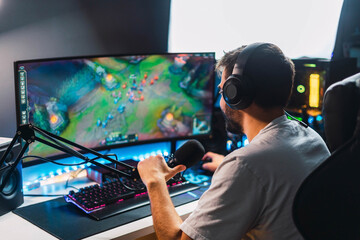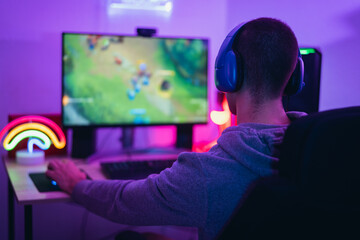Gaming on Linux has become more popular than ever, thanks to constant improvements in software and hardware support. But here’s the thing—Linux gaming still needs some smart hacks to get the best experience. That’s where tech hacks pblinuxgaming comes in. It’s about discovering clever tricks to boost your gameplay, fix compatibility issues, and optimize your system for smooth gaming. Whether you’re new to Linux or a seasoned user, knowing these hacks can make your gaming journey easier and more fun.
Why Choose Linux for Gaming?
Many gamers ask, “Why switch to Linux for gaming?” The answer is simple: Linux offers freedom, customization, and growing support for popular games. You won’t face heavy licensing fees, and open-source drivers keep improving. Plus, tools like Proton let you play Windows games without hassle. However, the system requires some tweaks to reach its full potential. This is where tech hacks pblinuxgaming becomes essential, helping you maximize performance and fix common issues.
Understanding Proton and Wine
If you want to play Windows games on Linux, Proton and Wine are your best friends. Proton is a compatibility layer developed by Valve, designed to run Windows games via Steam. Wine does something similar but supports a wider range of applications. Using these tools effectively means adjusting settings, installing dependencies, and sometimes using command-line hacks. Learning these details can dramatically improve your gaming experience on Linux.
Essential System Tweaks for Better Gaming
Gaming on Linux is not just about installing games—it’s about optimizing your system for performance. This includes managing CPU and GPU settings, adjusting power management, and disabling unnecessary background services. For example, tweaking your kernel scheduler or using tools like GameMode can reduce latency and boost FPS. These simple but powerful tech hacks pblinuxgaming will help your system run games smoother and more reliably.
Choosing the Right Linux Distro for Gaming
Not all Linux distros perform the same when it comes to gaming. Some, like Pop!_OS and Manjaro, are optimized for gaming out of the box, with better hardware support and easy driver installation. Others might require more setup but offer greater control. Knowing which distro fits your needs and learning how to configure it properly is a big part of gaming success. This is another crucial area where tech hacks pblinuxgaming can guide you.

Installing GPU Drivers on Linux
GPU drivers make or break your gaming experience. Nvidia users must install proprietary drivers for the best performance, while AMD users usually rely on open-source drivers that continue to improve. Using command-line tools or GUI managers to install and update drivers ensures your games run well. It’s a core hack for every Linux gamer who wants the smoothest gameplay possible.
Using Lutris for Game Management
Lutris is a popular open-source game manager that simplifies installing and running games on Linux. It supports native games, Windows games through Wine, and even emulators. Lutris automates many manual steps like installing dependencies or configuring Wine versions. Learning to use Lutris effectively is a major tech hack that makes Linux gaming accessible and enjoyable for everyone.
Tweaking Game Settings for Performance
Besides system-level tweaks, adjusting in-game settings is crucial. Lowering resolution, disabling unnecessary effects, or switching to windowed mode can boost performance. Sometimes, forcing games to use Vulkan instead of OpenGL can help. Understanding these options and how they interact with your Linux setup lets you fine-tune gameplay. These practical hacks bring noticeable improvements without hardware upgrades.
Managing Steam Play and Proton Versions
Steam Play allows Windows games to run on Linux through Proton. However, not all Proton versions work equally well with every game. Sometimes you need to switch Proton versions manually to fix bugs or improve performance. Keeping track of Proton releases and applying tweaks like enabling “Proton Experimental” is a savvy hack that many Linux gamers use to get the best out of their libraries.
Handling Audio Issues on Linux Gaming
Audio problems are common when gaming on Linux due to differences in sound servers like PulseAudio or PipeWire. Sometimes sound cuts out or lags behind gameplay. Using terminal commands to restart sound servers or changing audio backends fixes many issues. This practical tip falls under essential tech hacks pblinuxgaming that enhance overall gaming experience.
Customizing Keyboard and Mouse Input
Linux sometimes mishandles gaming peripherals, causing lag or unresponsive controls. Adjusting input settings, calibrating mouse DPI, or remapping keys via tools like xinput or evdev helps solve these problems. This customization ensures your controls feel tight and responsive, which is critical for competitive gaming. It’s a less obvious but powerful hack for serious Linux gamers.

Using GameMode for Automatic Optimizations
GameMode is a tool developed by Feral Interactive that optimizes your system for gaming automatically. It adjusts CPU governor, I/O priorities, and other parameters whenever you launch a game. Installing and enabling GameMode is a simple hack that significantly improves performance without manual intervention. It’s one of the best tech hacks you can implement right away.
Optimizing Network Settings for Online Gaming
Online games require stable, low-latency connections. Linux users can optimize network settings by tweaking TCP parameters, disabling unnecessary services, or prioritizing game traffic with tools like tc. While these changes might sound complex, they make a huge difference in online multiplayer games. Mastering these networking hacks is key for competitive Linux gamers.
Recording and Streaming on Linux
If you want to record or stream your gameplay, Linux has plenty of powerful tools like OBS Studio. However, configuring these tools to capture games running via Proton or Wine can be tricky. Adjusting capture settings, using virtual devices, and managing performance impact are important hacks that improve your streaming quality. Sharing your gameplay smoothly adds a fun dimension to Linux gaming.
Managing Storage for Large Games
Games are growing larger, and managing storage space is crucial. Linux users should consider filesystem types, partitioning schemes, and tools like symbolic links to manage game installations efficiently. Moving game files between drives without breaking Steam or Lutris configurations is a practical hack that saves space and keeps your library organized.
Using Terminal Commands for Quick Fixes
Linux offers powerful command-line tools to diagnose and fix gaming issues fast. Commands like dmesg, top, or strace provide insight into crashes or performance drops. Learning a few terminal hacks speeds up troubleshooting and avoids lengthy guesswork. This skill is fundamental to mastering tech hacks pblinuxgaming.
Community Resources and Forums
One of the biggest advantages of Linux gaming is its strong community. Forums like Reddit’s r/linux_gaming or ProtonDB offer detailed reports, fixes, and tips from fellow gamers. Engaging with these communities provides insider hacks and helps you stay updated with the latest tools and tricks. Community support accelerates learning and problem-solving.
Backup and Recovery Hacks
Data loss or system failures can ruin your gaming setup. Using backup tools like Timeshift or rsync regularly protects your configurations and saves your progress. Setting up recovery options and snapshots is a smart hack that every Linux gamer should adopt. It minimizes downtime and prevents frustrating data loss.

Using Virtual Machines for Incompatible Games
Sometimes, a game won’t run well on Linux even with Proton or Wine. In these cases, running Windows in a virtual machine (VM) with GPU passthrough is an advanced hack that can make those games playable. While complex to set up, VMs offer a workaround for stubborn titles and expand your gaming possibilities on Linux.
Monitoring System Performance
Tracking CPU, GPU, temperature, and memory usage during gameplay helps you spot bottlenecks and optimize further. Tools like htop, nvtop, or glances offer real-time monitoring. These insights guide your next tech hack, whether adjusting settings or upgrading hardware. Regular monitoring keeps your gaming setup in top shape.
Troubleshooting Common Errors
Linux gaming sometimes throws errors like missing libraries, crashing games, or controller issues. Knowing how to read logs, search for fixes, and apply patches quickly is a vital hack. Systematic troubleshooting reduces frustration and keeps you playing more. Developing this skill separates casual users from serious gamers in the Linux world.
Future of Linux Gaming and Tech Hacks
Linux gaming continues evolving with new tools, better drivers, and more game support. Keeping up with trends and adopting fresh hacks will keep you ahead of the curve. Whether it’s new Proton releases, kernel updates, or performance tweaks, continuous learning is the real power behind tech hacks pblinuxgaming. The future looks bright for Linux gamers ready to experiment and adapt.
Conclusion
Here’s the bottom line: gaming on Linux isn’t just possible—it’s powerful. But to unlock that power, you need to know what to tweak, how to fix issues fast, and where to find the tools that actually work. That’s what tech hacks pblinuxgaming is all about. From system performance to network tuning, from compatibility layers like Proton to frontend managers like Lutris, every piece plays a role in your overall experience. When you apply these hacks, Linux stops being a challenge and starts being your edge. So stay curious, stay hands-on, and don’t be afraid to dig into the terminal. That’s how Linux gamers win.
Frequently Asked Questions (FAQs)
1. What is Tech Hacks PBLinuxGaming?
It’s a set of Linux gaming tips and tricks focused on improving performance, compatibility, and game management using tools like Proton, Lutris, and GameMode.
2. Can I play all Windows games on Linux using these hacks?
No, but most popular titles work. Using ProtonDB and Lutris scripts increases your chances. Some games still require extra tweaks or don’t run at all.
3. What’s the best Linux distro for gaming?
Pop!_OS, Manjaro, and Fedora are popular. Choose one with good driver support and an active community.
4. Do I need to use the terminal for these hacks?
Sometimes, yes. Terminal commands offer more control and faster troubleshooting, but many tools also have graphical interfaces.
5. Is Linux gaming worth switching from Windows?
If you value privacy, performance, and control—yes. With the right tech hacks, Linux can offer a smoother and more personalized gaming experience.
Read also: kitchen design Simple, Smart, and Stylish Tips & Trick














